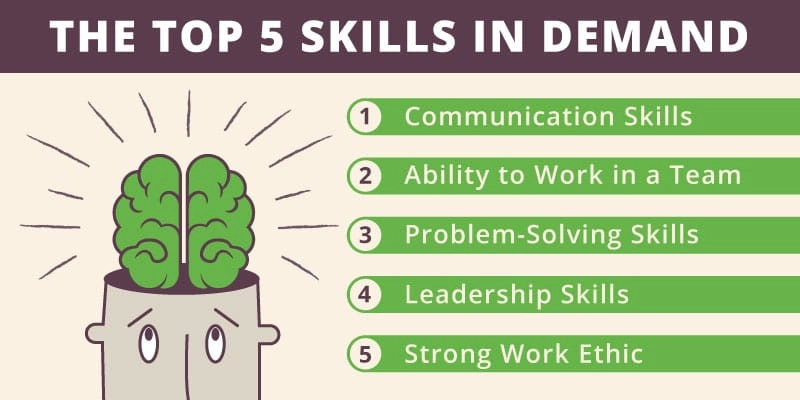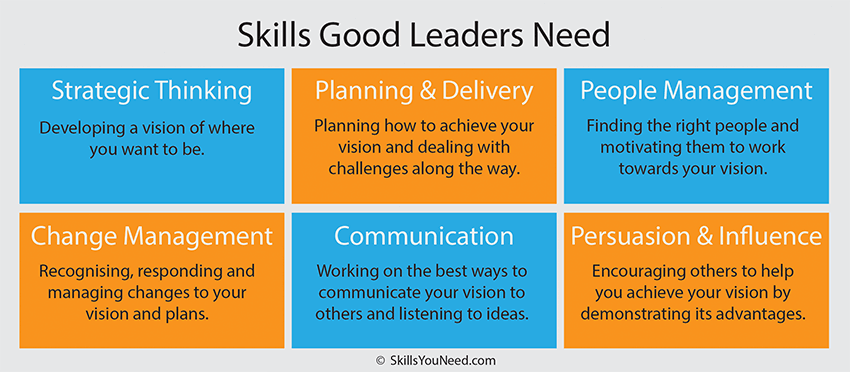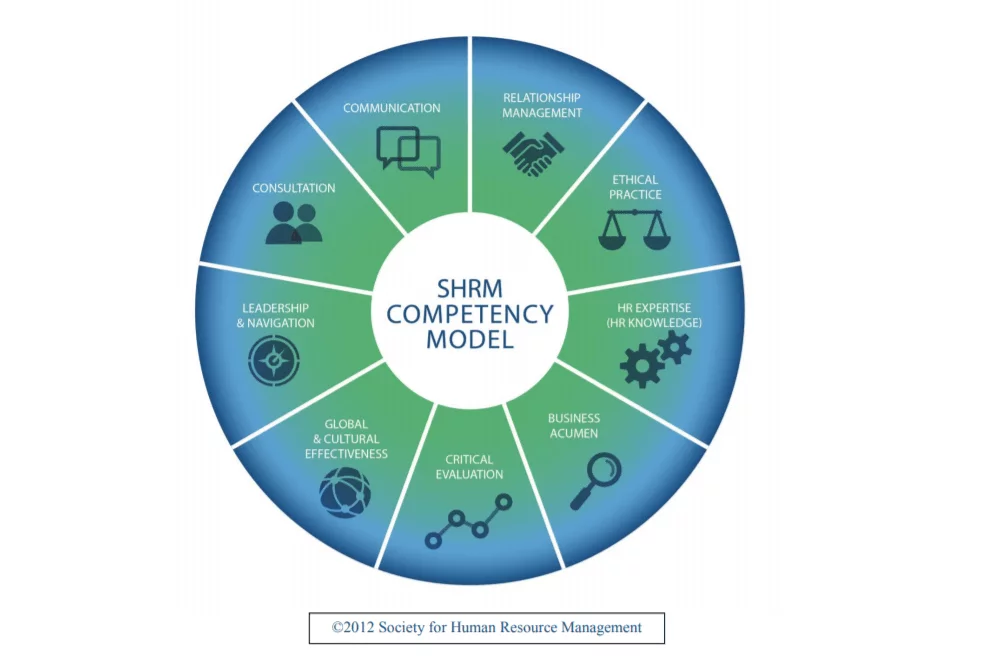The role of the HR professional is constantly evolving, but without core competencies and skills, HR managers could dramatically hurt your business.
There are several key skills and competencies for HR professionals to be aware of today. For any business to be successful, it’s essential that HR managers understand and master any HR core competencies they need to properly perform their job functions.
In fact, according to Evren Esen, the survey program manager at SHRM, “We can actually see the profession changing. Some core areas remain the same, but others, based on how the raters assess and perceive HR, are new.”
Skills and Competencies of HR Professionals
Let’s take a look at some key HR skills and competencies your human resource managers should possess to be able to effectively perform their job functions and ensure the success of your business.
Communication Skills
It should be no surprise that an effective HR professional needs to possess excellent communication skills. Having proper communication skills is one of the biggest key competencies of HR professionals because their job mainly consists of facilitating discussion between employees and employers. Without proper communication skills, HR professionals would not be able to effectively relay information between the two parties, causing the business to suffer. Having effective communication skills is such an important human resources competency that, Dave Ulrich, a professor of business administration at the University of Michigan, states, “You’ve got to be good at all of them, but, no question, is key.”
Critical Thinking
Another major key competency your HR managers should possess is critical thinking skills. HR professionals spend a lot of their time balancing complex situations and without being able to think critically, your HR managers would not be able to properly create an environment where all employees feel comfortable and are motivated to improve the business. In fact, according to Bloomberg, critical thinking is in the “sweet spot” of rare skills that companies want most but are less common to find.
Organizational Skills
While there are many key competencies of HR professionals to master today, possessing superior organizational skills is a must. Since being an HR manager is a huge juggling act, it’s important to be organized to stay ahead of any HR issues that may arise. A great way to help your HR professionals become more organized is to have them perform the same actions, in the same way, each day to help them build a routine. When all HR materials and practices are organized, your company will run much more smoothly.
Leadership
One of the biggest HR core competencies your HR professionals need to possess is leadership. HR managers are responsible for ensuring that the entire workforce is properly taken care of and resolving many issues the business may face. HR managers are not only responsible for the entire workforce but their department too so without the ability to effectively lead, your entire organization will suffer. Part of being an effective HR leader is to be flexible. For your business to be successful, your HR professionals have to be open-minded and willing to accept change and listen to opposing perspectives. When your HR managers are flexible in their position, your business and employees will be more flexible as well.
If you’re an HR professional yourself, and you’re concerned whether you’re meeting these key HR skills and competencies, Ulrich suggests, “Review the competencies with your business leaders and ask them if you’re doing them. Next, pose the same questions to your HR team. Then, ask yourself whether you really know the business or if you’re glossing on the surface.” He then suggests setting your priorities and getting to work on mastering these HR core competencies.
Possessing key competencies of HR professionals is so important because, according to Human Resources Management Policies and Practices in the United States, “70 percent of responding organizations said HR has a place on the board of directors, and 66 percent reported having a written HR management strategy.” For HR professionals to reach their full potential at any organization, it’s essential that they learn and master all HR skills and competencies.
Now that we know some of the major human resources competencies your HR professionals should possess, let’s take a look at how you can ensure that you always hire the best talent for your business with a proper skills and competencies model.
A proper competency model is essential for your HR managers to be able to hire employees that will not only help the business stay successful but decrease turnover rates as well.
Since competencies are sets of skills, knowledge, abilities, and attributes that enable people to successfully perform their jobs, a proper competency model is essential to achieve higher ROI of employees hired and lower turnover. There are many steps in developing a competency model for your HR managers to ensure that they’re hiring competent employees to work for your company.
Your competency model development should begin with a desire to support your associates throughout their entire employee lifecycle including selection, performance, management, training, and succession planning. HR competencies like pre-hire selection assessments, performance management criteria, succession planning programs, and training and development curriculums are essential to ensure that you’re not only hiring the best employees, to begin with but that those employees continue to do well in their positions and help your company grow and stay successful.
SHRM Competency Model
Competency model development begins with aligning relevant business outcomes and HR skills and competencies with your competency model. To ensure that your competency model process is business-focused from start to finish, follow these steps and you’ll be able to rest easy knowing you’re hiring the best employees to help your company achieve success.
Step 1: Collect Data
It’s not enough to rely solely on interviews with potential employees as the cornerstone of your competency model development. This strategy is not only shortsighted but doesn’t provide the necessary information needed to identify the critical competencies of HR professionals for a particular job. By collecting data from potential employees, leaders, and internal or external customers through multiple formats, you’ll be able to obtain more information and enhance the relevance of your HR competency model and the key competencies of HR professionals.
Step 2: Integrate Data
While it’s essential to collect data from multiple perspectives, it’s not enough. Data must be analyzed separately then brought together to create a cohesive story around the critical knowledge, skills, abilities, and characteristics that will ensure the success of your competency model.
Step 3: Focus on Goals
When you focus on specific goals, you reinforce the alignment between your competency model development and the needs of your organization, creating a sense of urgency and cementing HR core competencies your employees should possess.
Step 4: Make it Practical
Your competency model is not useful unless everyone in the company can follow along. Avoid using technical jargon and fancy acronyms when describing the competencies of HR professionals needed for particular roles within your organization. By making your competency model interesting instead of a tedious HRM process, you bring it to a level where action can be taken easily.
Step 5: Establish a Strategy
Since your competency model can be used to determine whether you should hire new talent to join your organization or provide internal staff training to meet essential competencies of HR professionals, your competency model should be used to assess the time, effort, and budget available to create a strategy that will provide your organization with personnel that meet these requirements.
Step 6: Set Minimum Requirements
Your HR competency model needs to address the minimum acceptable levels of performance for each competency included in your model. Without leaders and managers across the organization understanding the minimum level at which individuals can perform and still be successful in their roles, they will not be able to hire employees that can contribute to the success of your organization.
Step 7: Business Outcomes
By linking your competency model to your desired business outcomes, you’ll be able to validate your HR competency model and show its direct business impact. This is an essential step in developing your competency model because it helps to drive your training, hiring, and performance strategies since you have a better understanding of which competencies to focus on based on their importance to your bottom line.
Step 8: Include Standards of Performance
It is essential that you make values and standards of performance a central part of your competency model because these standards represent a key piece of how the job should be performed.
Your SHRM competency model isn’t complete once you’ve created the perfect version of it. It is essential that you continue to refine your HR competency model and the strategy you use to create it. Try revising your competency model at least every year and a half to reflect the new roles of your organization and to ensure its comprehensiveness and relevance to your business objectives. Without an updated competency model on hand, the leaders of your organization will not be able to hire competent employees and your business will suffer.
These skills and competencies of HR professionals should be evident in the work life of every human resource professional.







